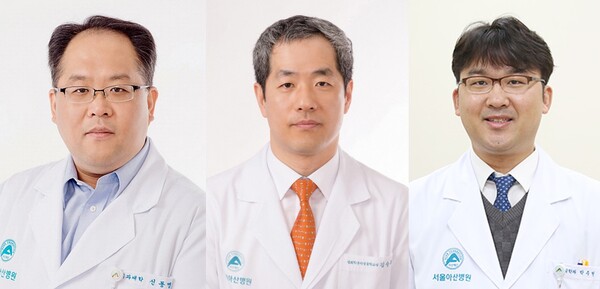In diabetic patients, changes in sensory nerves and oxidative stress caused by elevated blood sugar levels can weaken the bladder muscles, increasing the likelihood of an underactive bladder. Major symptoms include a weak urine stream, delayed initiation of urination, and residual urine, all of which worsen as the disease progresses, further impacting patients’ quality of life.
Currently, there is no complete treatment available, leaving patients to rely on self-catheterization, a process that involves inserting a catheter into the urethra to drain residual urine. This process must be repeated four to six times a day, causing pain, disrupting daily activities, and carrying a high risk of complications such as urinary tract damage and infection.
However, recent research suggests that stem cells may provide a new approach for treating underactive bladders in diabetic patients, a condition that has long presented management challenges.

A study published this month in Clinical and Translational Medicine reports that a single administration of mesenchymal stem cells led to improved urinary function in a diabetic animal model with an underactive bladder, with therapeutic effects lasting over four weeks.
A research team led by Professor Shin Dong-myung at the Center for Cell Therapy, along with Professor Kim Seong-who from the department of biochemistry and molecular biology and Professor Park Ju-hyun from the department of urology at Asan Medical Center (AMC), has developed a stem cell therapy aimed at regenerating bladder nerves and muscles, potentially offering a fundamental treatment for an underactive bladder in diabetic patients.
For their preclinical efficacy assessment, the researchers established an underactive bladder model by inducing diabetes in mice using a low dose of streptozotocin, a drug that destroys beta cells. In the streptozotocin-administered group, they observed severe urinary dysfunction characterized by significantly increased urination intervals, higher residual urine volumes, and reduced bladder capacity, along with decreased urination pressure.
In contrast, the group that received a single dose of functionally enhanced mesenchymal stem cells (PFO-MSC), developed in collaboration with the Cell Therapy Center at AMC, showed improvement in urinary dysfunction, along with reduced inflammation and muscle damage in the bladder, with these effects persisting for over four weeks.
This PFO-MSC treatment was developed using the team’s small-molecule culture technology, which, according to the researchers, “enhances stem cell survival and antioxidant capacity without genetic modification while preserving mesenchymal stem cell characteristics through a single-step process.“
Professor Shin described this development as a significant advancement, stating that the PFO-MSC will serve as a “key foundational technology” for enhancing adult stem cell therapies in clinical settings.
Notably, the implanted PFO-MSCs expressed muscle protein (α-SMA) within the bladder’s muscle layer, directly contributing to muscle regeneration. Single-cell analysis of the highly purified isolated cells revealed molecular characteristics of muscle progenitor cells.
Professor Shin and his colleagues are working with the Cell Therapy Center to establish an industrial production system that encompasses mass production, manufacturing processes, and quality control. This system will facilitate in-house production of multifunctional stem cell therapy technologies and enable their immediate application in external facilities. They also plan to link this system with sponsor-initiated clinical trials (SIT) in the future.

